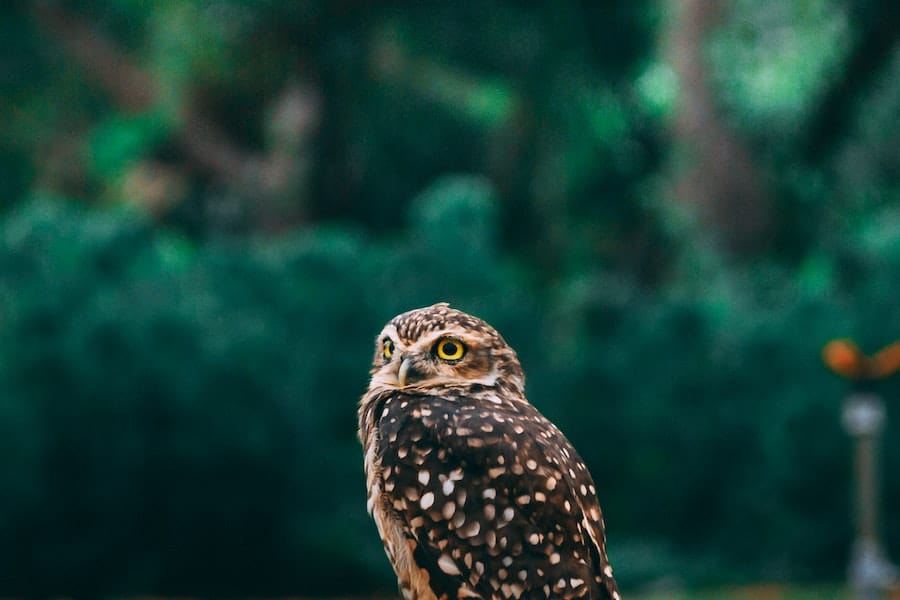Mosquitoes, those tiny buzzing insects that leave us with itchy bites and carry diseases, are a common annoyance in many parts of the world. However, nature has provided us with a natural ally in the battle against these pesky pests: birds. These feathered creatures are crucial in controlling mosquito populations through their dietary habits. In this article, we delve into the fascinating world of avian mosquito predators, exploring the types of birds that consume mosquitoes and the significance of their presence in our ecosystems. By understanding the vital role that birds play in natural pest control, we can appreciate the value of these winged warriors and learn how to create bird-friendly environments to enhance mosquito control efforts.
What Birds Eat Mosquitoes?
Many bird species have a taste for mosquitoes and actively include them in their diets. Swallows and swifts, known for their agile flight, are particularly adept at catching mosquitoes mid-air. Warblers, with their insectivorous nature, also consume mosquitoes as part of their diet. Purple Martins, a type of swallow, are renowned for their voracious appetite for mosquitoes and are often encouraged as natural pest control agents. Additionally, other birds, such as flycatchers and some species of sparrows and bats, also include mosquitoes in their menu. These mosquito-eating birds provide a valuable ecological service by helping to control mosquito populations naturally.
Various Bird Species Are Known To Consume Mosquitoes.
There are several bird species known for their inclination to consume mosquitoes as part of their diet. These mosquito-eating birds play a significant role in controlling mosquito populations naturally. Here are some notable bird species that target mosquitoes:
Purple Martin (Progne subis): Purple Martins are known for their voracious appetite for mosquitoes and other flying insects. They are cavity-nesting birds that often rely on human-provided nesting structures, such as martin houses, for breeding. Their diet consists predominantly of insects, including mosquitoes, making them effective mosquito predators.
Swallows (Hirundinidae family): Swallows, such as Barn Swallows (Hirundo rustica) and Tree Swallows (Tachycineta bicolor), are highly skilled aerial hunters. They have agile flight capabilities and are known for their acrobatic maneuvers, enabling them to catch mosquitoes and other flying insects on the wing.
Swifts (Apodidae family): Swifts, like the Chimney Swift (Chaetura pelagic), are another group of birds known for their aerial insect-catching abilities. They have long, slender wings and spend much of their time in flight, maneuvering swiftly through the air to capture mosquitoes and other flying insects.
Warblers (Parulidae family): Many warbler species include mosquitoes in their diet. Warblers are small, colorful birds that are often found in forested habitats. They forage actively among foliage and tree canopies, capturing mosquitoes and other insects as they move through the vegetation.
Flycatchers (Tyrannidae family): Flycatchers, such as Eastern Phoebes (Sayornis phoebe) and Great Crested Flycatchers (Myiarchus crinitus), are insectivorous birds that catch insects on the wing. They perch on branches, observe their surroundings, and dart out to capture mosquitoes and other flying insects in mid-air.
Importance Of Mosquito Control
Mosquito control is paramount for various reasons, ranging from public health concerns to the overall well-being of ecosystems. Here are some key reasons highlighting the significance of effective mosquito control:
Mosquitoes are vectors for numerous diseases that pose significant health risks to humans, including malaria, dengue fever, Zika virus, West Nile virus, and various forms of encephalitis. Controlling mosquito populations helps minimize the transmission of these diseases, protecting public health and saving lives.
Mosquito-borne diseases can severely affect individuals and communities. They can cause illness, disability, and even death, particularly among vulnerable populations such as children, pregnant women, and the elderly. Effective mosquito control measures reduce the burden of these diseases and enhance public health outcomes.
Mosquitoes are notorious for their irritating bites, which can cause itching, discomfort, and allergic reactions in individuals. By controlling mosquito populations, people can enjoy outdoor activities, sleep better at night, and maintain a higher quality of life without constant disturbances and discomfort caused by these pests.
Mosquito-borne diseases can have significant economic consequences. Outbreaks of diseases like dengue fever and malaria can strain healthcare systems, increase medical costs, and reduce productivity due to illness. By implementing mosquito control measures, communities can mitigate these economic burdens and promote a more stable and prosperous environment.
Mosquitoes are part of various ecosystems and serve as a food source for many organisms, including fish, birds, bats, and other insects. While controlling mosquito populations is essential, it should be done in a balanced and sustainable manner to avoid disrupting the ecological balance. Promoting natural mosquito predators and employing environmentally friendly control methods help maintain the delicate equilibrium of ecosystems.
Effective mosquito control is crucial in integrated vector management strategies. By combining various methods such as habitat modification, source reduction, insecticide use (when necessary), and public education, communities can implement comprehensive approaches to minimize mosquito populations and reduce disease transmission risks.
Benefits Of Birds Eating Mosquitoes
The benefits of birds eating mosquitoes extend beyond the mere satisfaction of hunger. These avian mosquito predators are crucial in controlling mosquito populations and provide several advantages to ecosystems and human communities. Here are some key benefits of birds consuming mosquitoes:
Mosquito Population Control:
Birds that consume mosquitoes contribute to the regulation of mosquito populations naturally. By preying on mosquitoes, birds help control their numbers, preventing exponential population growth. This, in turn, reduces the nuisance caused by mosquitoes and lowers the risk of mosquito-borne diseases.
Minimization Of Mosquito-Borne Diseases:
Mosquitoes are known vectors for various diseases, including malaria, dengue fever, Zika virus, and West Nile virus. When birds consume mosquitoes, they reduce the likelihood of these disease-carrying insects coming into contact with humans. By reducing mosquito populations, birds indirectly contribute to the mitigation and prevention of mosquito-borne illnesses.
Ecological Balance:
Birds serve as essential components of ecosystems, and their consumption of mosquitoes helps maintain ecological balance. Mosquitoes are part of the food chain, and when bird species consume them, they fulfill their natural role as predators, promoting a harmonious balance in the ecosystem.
Preservation Of Biodiversity:
Birds that eat mosquitoes contribute to preserving biodiversity. By controlling mosquito populations, they indirectly protect other species that an overabundance of mosquitoes might negatively impact. Preserving biodiversity is crucial for maintaining a healthy and resilient ecosystem.
Natural Pest Control:
Birds that feed on mosquitoes provide natural and sustainable pest control. Unlike chemical insecticides or other human intervention methods, the presence of mosquito-eating birds does not harm the environment or pose risks to other organisms. Embracing natural pest control methods involving birds can reduce reliance on harmful chemicals and promote a healthier ecosystem.
Enjoyment Of Outdoor Spaces:
By controlling mosquito populations, birds enhance the enjoyment of outdoor spaces for humans. People can engage in outdoor activities, such as picnics, gardening, and recreational sports, without being constantly bothered by swarms of mosquitoes. The presence of mosquito-eating birds can make outdoor experiences more pleasant and comfortable.
Final Words
In conclusion, the presence of mosquito-eating birds in our ecosystems holds immense value and significance. These avian predators contribute to the natural control of mosquito populations, reducing the nuisance and health risks of these blood-sucking pests. By consuming mosquitoes, birds help regulate their numbers, minimize the transmission of mosquito-borne diseases, and maintain ecological balance. Their role in natural pest control promotes sustainability, biodiversity, and a healthier environment for humans and other species.
FAQ’s
Q: Which bird species are most effective at controlling mosquito populations?
A: Swallows and swifts, such as Barn Swallows, Tree Swallows, and Chimney Swifts, are highly effective at catching mosquitoes on the wing. Purple Martins are also renowned for their mosquito consumption. Warblers, flycatchers, and certain sparrow species contribute to mosquito control efforts.
Q: Do all birds eat mosquitoes?
A: Not all bird species eat mosquitoes as a significant part of their diet. However, many bird species include mosquitoes in their foraging repertoire to varying degrees. Birds that are insectivorous or specialize in catching flying insects are more likely to consume mosquitoes.
Q: How many mosquitoes can a bird eat in a day?
A: The number of mosquitoes a bird consumes daily can vary depending on the bird’s species, size, and habitat. Some estimates suggest that a single bird can consume hundreds of mosquitoes in a day, particularly during breeding seasons when the demand for food is higher.








